The cloves spice originates from the unopened rose buds of the evergreen clove tree Syzygium aromaticum. The buds are plucked by hand while they are still pink and are dried, until they acquire a brownish color. They resemble thin, long fingernails, hence their English name cloves, derived from the Latin word clavus (nail). Their scientific name is Eugenia caryophyllus.
Like other spices, cloves are available year-round. They are revered for the uniquely warm, sweet and aromatic flavor they add to gingerbread, pea soup, bean soup and even baked beans or chili.
Although cloves have a hard exterior, their interior contains a fatty component that is essential to their nutritional and flavor profile. Clove spice resembles small cloves 1 centimeter long.
History of cloves
Cloves have been known as a spice with a refined taste since time immemorial. Cloves are native to the Moluccas, known as the Spice Islands of India. They have been consumed in Asia since more than 2000 years ago. Thanks to their sweet and aromatic taste, Chinese courtiers used cloves to freshen their breath when they had to address the emperor. Around the 4th century, Arab traders brought cloves to Europe, where, however, they gained popularity only in the Middle Ages.
Although for a long time cloves were cultivated almost exclusively in Indonesia, today the leading producer is Zanzibar in East Africa. Apart from these two regions, cloves are also grown in commercial quantities in the West Indies, Sri Lanka, Madagascar and Brazil.
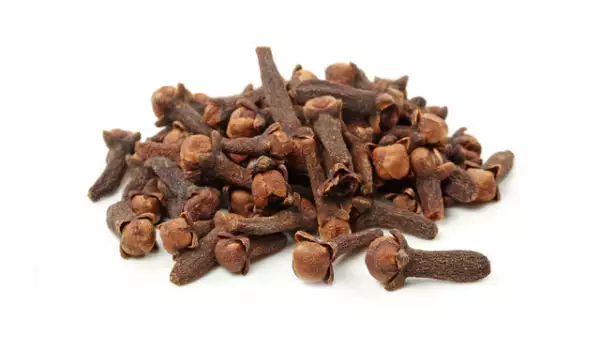
Composition of cloves
Cloves also contain a variety of flavonoids, that also contribute to their anti-inflammatory properties. Like those of their fellows, clove's unique phytonutrients are accompanied by an incredible variety of traditional nutrients. This plant is an excellent source of manganese, dietary fiber, vitamin C, vitamin A, known amounts of vitamin K and omega-3 fatty acids, as well as calcium and magnesium.
Choosing and storing cloves
• Whenever possible buy whole cloves and not powder, since when crushed they lose their aroma faster;
• When lightly pressed with the tip of the nail, cloves will release a small amount of their oil;
• Another way to recognize good cloves is to put them in water - if they stand vertically, it means they are of good quality and if they sink or lie horizontally - they are not;
• If you can, choose organically grown cloves;
• Cloves should be stored in a well-closed glass container;
• A good clove bends, even when dried. If you press it on paper, it should leave a greasy mark.
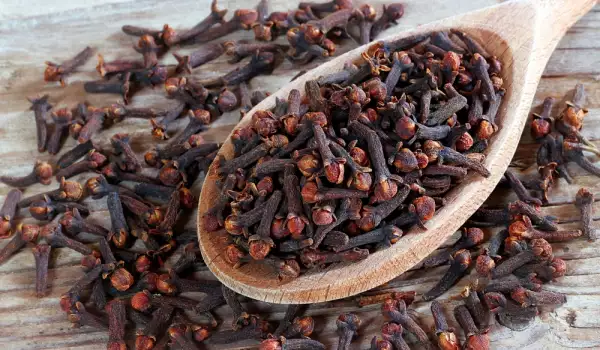
Cooking with cloves
• Always be careful what amount of cloves you put in the dish, as their aroma is quite strong;
• If you want to grind the cloves into flour, use a coffee grinder;
• Cloves are a good spice for soups, broths or baked goods;
• Adding cloves and curry powder to sauteed onions, garlic and tofu will create a dish with an Indian touch;
• You may season your fruit compotes with this spice and obtain an exceedingly good result;
• If you have the opportunity to break cloves, put the caps in pastries and the stick in meat dishes and marinades.
Cloves are a favorite spice in many countries around the world. Depending on which latitude cloves are used, they are used to flavor grilled fish, poultry and other meats. They are included in pickles and in some hot drinks /mulled wine for example/.
Cloves are present in the famous worcestershire sauce. Europeans use them to flavor dishes with dried fruit, heavily spiced pastries and in some cases - red meats and game.
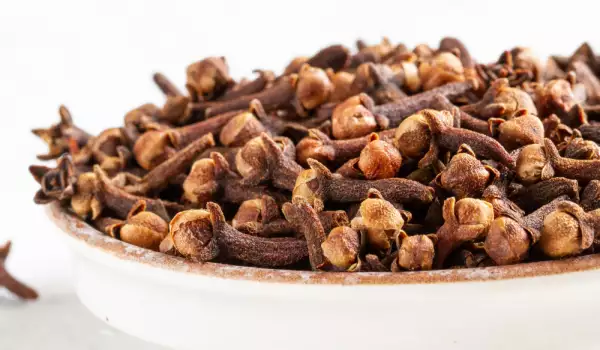
Benefits of cloves
Eugenol, the main component in clove oil, acts as an anti-inflammatory substance. In animal studies, adding clove concentrate to an already anti-inflammatory diet adds significant benefits, in some cases reducing inflammation by an additional 15-30%.
Cloves effectively reduce iron levels. Scientists believe that cloves help to improve the quality and taste of various dishes and hors d'oeuvres and also have a positive effect on health.
Cloves have the property of strengthening the immune system as they increase the number of white blood cells, which in turn fight the infections and pathogens that surround us. This is also due to the high content of vitamin C, which is a powerful antioxidant.
Often cloves are used as a digestive aid, because they increase the amount of enzymes in the body. They also reduces nausea in various stomach ailments. In addition, the aromatic spice is extremely rich in fiber, which have a beneficial effect on the processes in the stomach. They are best consumed with honey for even better action.
Cloves are also known for their ability to reduce toothache, due to their good analgesic and antiseptic properties. Of course, this is only a temporary solution, but until you can go to the dentist, you can put a clove on the sick tooth.
The spice is also very beneficial for bone health and joints. This is due to the ingredients in it that increase bone density and even participate in the creation of new bone tissue. They also help transport necessary materials to the bones.
The antibacterial properties of cloves help eliminate harmful bacteria such as staphylococci. They also support the health of the liver, since they help to process the drugs taken more quickly.
Cloves are very rich in polyphenols - valuable antioxidants that lower cholesterol and high blood pressure, increase the flexibility of arteries and prolong life.
Clove tea has the property of treating the so-called traveler's diarrhea, which is seen in many people while traveling. Regulates stomach enzymes and helps speed recovery. Its antifungal properties cleanse the gastrointestinal tract. After just a few intakes, a person's condition improves.
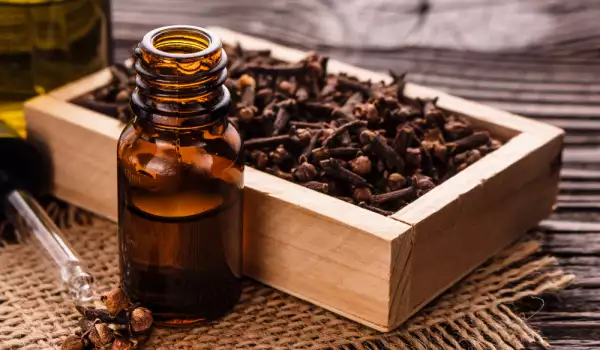
Harms from cloves
Although a widely used spice with good culinary and health benefits, cloves also have a dark side that you should consider. It is believed that excessive consumption of the spice can increase the risk of bleeding. Some of the ingredients in cloves suppress the formation of blood, which reduces the ability of blood to clot - this means that if you get a wound, you will bleed more profusely. The spice is even more dangerous for people with chronic diseases such as hemophilia, as well as those taking anticoagulants.
People with low blood sugar should also be careful with clove intake. It has been proven, that they can reduce the amount of glucose in our blood, which can be extremely harmful for people with hypoglycemia. Therefore, try to monitor your blood sugar levels carefully and eliminate cloves from your diet accordingly if you have any concerns or side effects.
Cloves in large doses can be highly toxic to the body. If stored improperly or taken in larger quantities, symptoms such as sore throat, shortness of breath, nausea and vomiting, imbalance of body fluids may occur.
Among the most common side effects of cloves is allergy. Most often, the symptoms are expressed in rashes, swelling, urticaria. It is possible that the mucous membranes in the body become inflamed from excessive amounts of cloves, they can cause inflammation of the lips and oral cavity.
Cloves are also not recommended for small children and pregnant women. Although they have a number of useful properties, their side effects are dangerous for these two risk groups, who are too vulnerable, because of the delicate condition - children, who do not yet have a sufficiently strengthened immune system and pregnant women, who are undergoing a number of changes in the body.
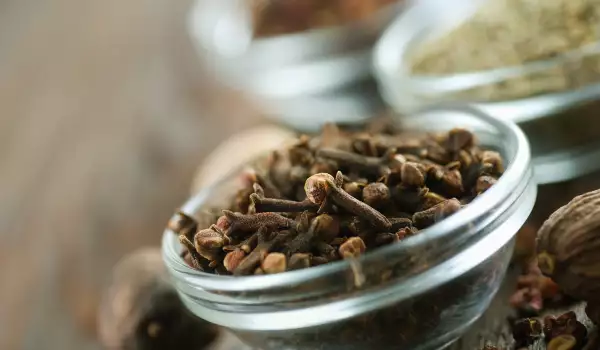
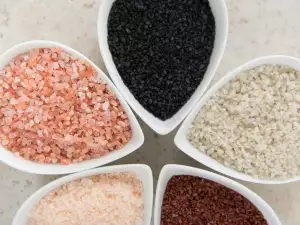
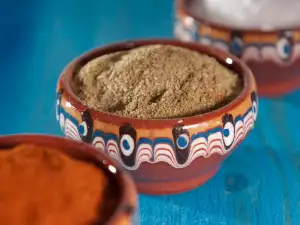
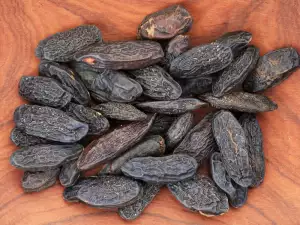
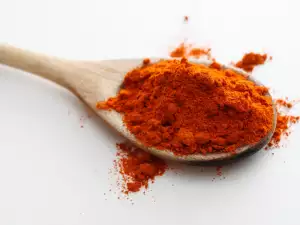
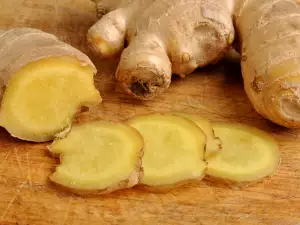
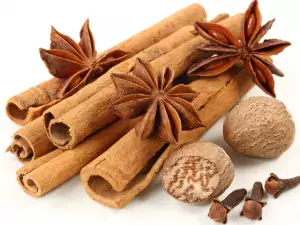
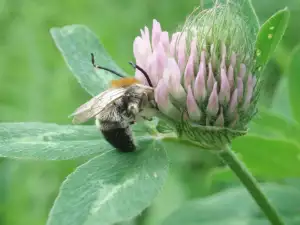
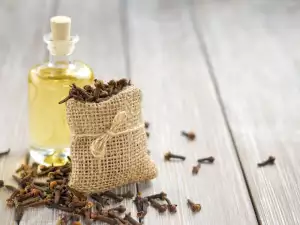
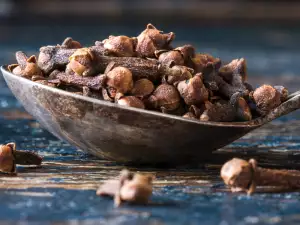



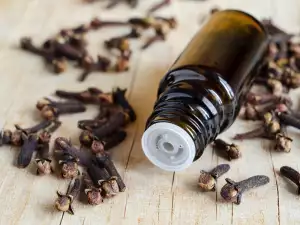
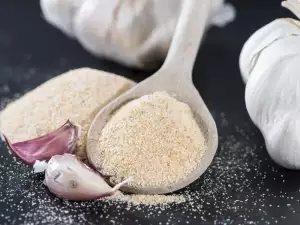
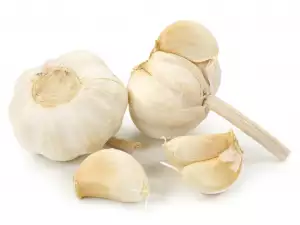



Comments